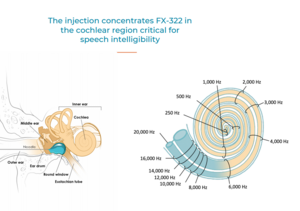- Feb 14, 2020
- 1,630
- Tinnitus Since
- 1-2019
- Cause of Tinnitus
- 20+ Years of Live Music, Motorcycles, and Power Tools
Note that the only data they had at the interim readout was at a group-level.I believe they said there was no difference between placebo improvements and drug improvements.
Since no one knew if they got placebo or drug, both groups were equally impacted by bias, and both groups showed similar "improvement."
Unfortunately, that's not a meaningless result. It suggests the drug was not effective.
Otherwise, you would see bias "improvement" + actual improvement, i.e. more improvement, among the drug-receiving cohort.
I think it was @Zugzug that did an excellent assessment for the issue with trial design where participants artificially deflated their word scores to gain entrance into the trial.
If this bias is the case, and these participants were randomly distributed across all 4 cohorts, then it wouldn't necessarily be that the drug isn't effective, it would mean that they would have no way to prove at a group level whether it was or was not when compared to placebo.

 Member
Member